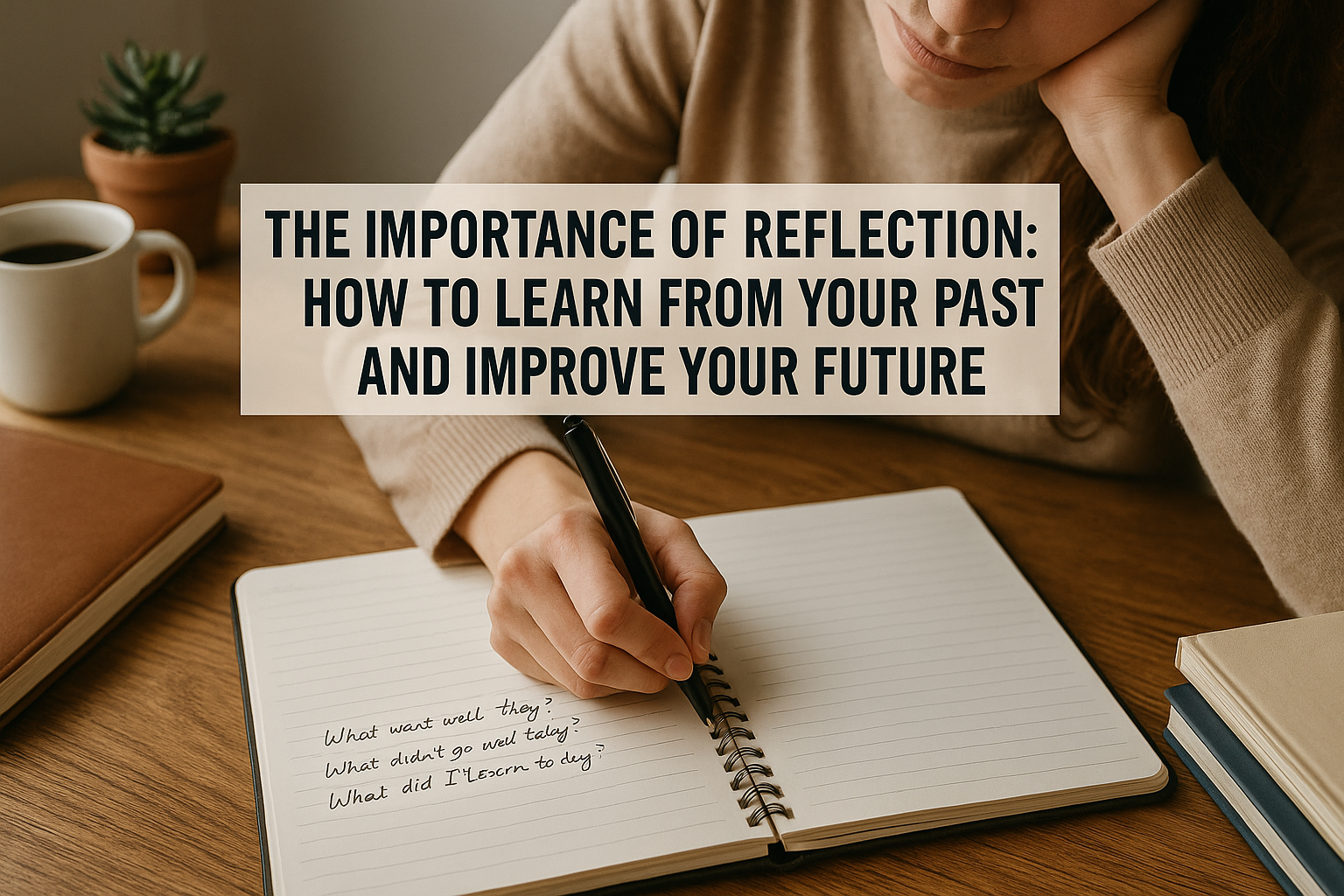Most people move from one day to the next without stopping to ask, “What did I learn?” But reflection is where growth happens. It turns experience into insight. It helps you avoid repeating mistakes, recognize progress, and stay aligned with your goals.
In this article, you’ll learn how to make reflection a powerful habit in your personal and professional life.
What Is Reflection (and Why It Matters)
Reflection is the intentional act of looking back on your actions, thoughts, or outcomes to understand them better.
Benefits include:
- Learning from mistakes
- Gaining clarity on what’s working
- Increasing self-awareness
- Making better decisions in the future
- Strengthening emotional intelligence
Without reflection, you risk living on autopilot.
1. Build a Simple Daily Reflection Habit
You don’t need to write a novel—just 5 minutes is enough.
Try questions like:
- What went well today?
- What didn’t go well, and why?
- What did I learn about myself?
- What’s one thing I’ll do differently tomorrow?
You can journal, record a voice note, or just think through the questions during your evening routine.
2. Use Weekly or Monthly Reviews
Zooming out gives you bigger-picture insights.
Every week or month, ask:
- What were my biggest wins?
- What challenges did I face, and how did I handle them?
- What habits or behaviors supported (or sabotaged) me?
- What should I focus on next?
This reflection helps you adjust your strategy and refocus your efforts.
3. Reflect on Mistakes Without Judgment
Mistakes aren’t failures—they’re feedback.
Instead of asking, “Why did I mess up?” ask:
- What caused this outcome?
- What was I thinking or feeling at the time?
- What would I do differently next time?
Compassionate reflection leads to growth. Harsh self-criticism leads to avoidance.
4. Track Patterns Over Time
Reflection helps you spot recurring patterns:
- When are you most productive?
- What drains your energy?
- What triggers stress or procrastination?
- What motivates or inspires you?
Use a journal, app, or spreadsheet to keep track. You’ll start noticing themes that can guide better decisions.
5. Combine Reflection With Visualization
After reviewing the past, imagine the future.
- How do I want to show up tomorrow?
- What would the best version of me do next?
- What would success look and feel like?
This practice aligns your actions with your vision.
6. Reflect With Others
You don’t have to reflect alone. Try:
- Weekly check-ins with a friend, coach, or partner
- Team retrospectives at work
- Group reflections in mastermind groups
- Social media journaling (public or private)
Talking things out helps you clarify your thinking and gain new perspectives.
7. Don’t Just Reflect—Apply What You Learn
Reflection without action is just nostalgia. Use your insights to:
- Adjust your habits
- Set new boundaries
- Improve your systems
- Make more intentional choices
Your past has value—but only if you use it to create a better future.
Final Thought: Slow Down to Speed Up
Reflection doesn’t slow you down—it prevents you from wasting time repeating avoidable mistakes.
Take time today to pause, reflect, and ask, “What is this moment trying to teach me?”
The answers are already within you. You just have to listen.

